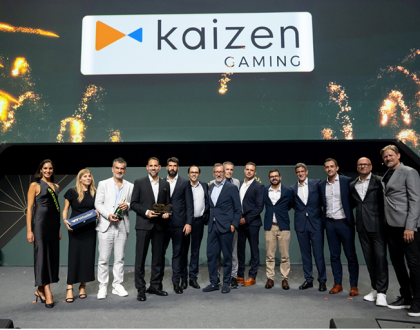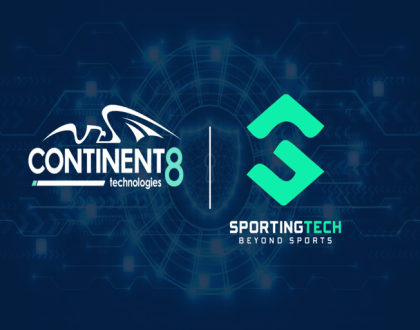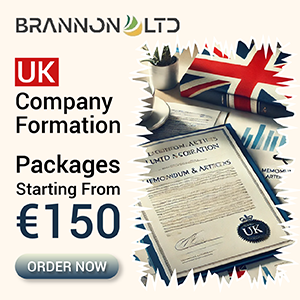Malta’s iGaming License Landscape

Just starting out in the world of iGaming? Understanding Malta's iGaming license landscape is crucial for anyone looking to establish a successful online gambling business. With its reputation as a hub for iGaming companies, Malta offers a comprehensive regulatory framework that can be both beneficial and challenging for new applicants.
Historical Development of iGaming in Malta
While the iGaming industry in Malta is known for being one of the most established and reputable in the world, its journey to this point has been a fascinating one. Understanding the historical development of iGaming in Malta provides valuable insights into the current landscape of the industry in the country.
The Birth of Online Gaming in Malta
An imperative milestone in the history of iGaming in Malta was the establishment of the Lotteries and Gaming Authority in 2001, which later evolved into the Malta Gaming Authority (MGA). This regulatory body was instrumental in laying the foundation for Malta to become a hub for online gaming companies seeking a reputable license within the European Union.
Evolution and Regulation Changes
Malta has constantly evolved its regulatory framework to stay ahead of the curve in the fast-paced iGaming industry. The country has made strategic changes to its laws and regulations to adapt to technological advancements, changing market trends, and global regulatory standards.
Plus, Malta's proactive approach to regulating iGaming has earned it a reputation as a leading jurisdiction for online gambling operators. The MGA has established itself as a reliable and strict regulator, ensuring that license holders uphold the highest standards of player protection and operational integrity.
Key Components of the Malta Gaming License
Types of iGaming Licenses
The Malta Gaming Authority (MGA) offers several types of iGaming licenses based on the specific activities a company wishes to undertake. These include a B2B license for operators providing services to other operators, a B2C license for operators directly offering gaming services to players, a critical gaming supply license for software providers, and a gaming service license. Each license type has its own set of requirements and obligations, making it crucial for businesses to carefully choose the one that best suits their needs.
Knowing the differences between the various types of iGaming licenses is vital for operators seeking to enter the Maltese market. The table below outlines the key components of each license type for better understanding.
| License Type | Description |
|---|---|
| B2B License | For operators providing services to other operators |
| B2C License | For operators offering gaming services directly to players |
| Critical Gaming Supply License | For software providers |
| Gaming Service License | For various gaming service providers |
Criteria for Obtaining a License
On top of the specific requirements for each license type, there are general criteria for obtaining a Malta Gaming License. These include meeting anti-money laundering regulations, having a robust player protection system in place, ensuring the integrity of games and random number generators, and conducting responsible gaming initiatives. Additionally, applicants must demonstrate a solid financial standing and a clear ownership structure to be considered for a license.
Licensing from the MGA is a rigorous process that involves thorough scrutiny of all aspects of the business. The authority places a strong emphasis on compliance and regulatory standards, making it crucial for applicants to have all their documentation and processes in order before applying. The MGA also conducts background checks on key personnel involved in the operations to ensure that only qualified individuals are granted a license.
The Application Process
Preliminary Steps and Documentation
To initiate the process of obtaining an iGaming license in Malta, operators must first undergo a series of preliminary steps. This includes conducting thorough background checks on the key individuals within the company, as well as ensuring that the business is compliant with all relevant regulations. Additionally, operators must prepare a comprehensive set of documents to submit as part of their application.
Understanding the Costs and Fees
Preliminary cost estimates are crucial for operators considering applying for a Malta iGaming license. It is crucial to understand the fees involved, which can vary depending on the type of license sought and the size of the operation. The application fee alone can range from several thousand to tens of thousands of euros, and there are also ongoing annual fees to consider.
Documentation submitted as part of the application process must be accurate and up-to-date to avoid delays or rejections. It is imperative that operators provide complete financial records, proof of identity for key personnel, a business plan, a compliance strategy, and other supporting documents as required by the Malta Gaming Authority. Failure to submit thorough and accurate documentation can result in significant delays in the licensing process.
Regulatory Bodies and Standards
Role of the Malta Gaming Authority (MGA)
Notably, the Malta Gaming Authority (MGA) stands as the primary regulatory body overseeing the iGaming industry in Malta. Established in 2001, the MGA is responsible for issuing licenses, monitoring gaming activities, and ensuring operators comply with regulatory standards.
Compliance and Anti-Money Laundering (AML) Measures
With stringent regulations in place, the MGA requires license holders to adhere to comprehensive compliance and anti-money laundering measures. These measures are crucial in protecting players and maintaining the integrity of Malta's iGaming sector. Failure to comply can result in severe penalties or revocation of the license.
Understanding the importance of compliance and AML measures is necessary for operators seeking to obtain and maintain a license in Malta. Stringent adherence to these regulations not only safeguards the industry but also ensures a secure and transparent gaming environment for all stakeholders involved.
Benefits of Choosing Malta for iGaming Operations
After deciding to establish iGaming operations, one of the crucial considerations is choosing the right jurisdiction. Malta has emerged as a leading destination for iGaming companies due to its pro-business environment and robust regulatory framework. Let's explore some of the key benefits that make Malta an attractive option for iGaming operators.
Economic Incentives
An crucial aspect that draws iGaming companies to Malta is the economic incentives offered by the government. The country provides a competitive corporate tax rate of 35%, with the possibility of refunds that can bring the effective tax rate down to 5%. Moreover, Malta offers a tax credit system, where shareholders can benefit from tax refunds on distributed profits, making it an economically advantageous choice for iGaming businesses looking to optimize their financial operations.
Strategic Advantages and Industry Reputation
One of the key strategic advantages of choosing Malta for iGaming operations is its well-established reputation in the industry. Malta has been a pioneer in regulating online gaming, having introduced the first comprehensive regulatory framework back in 2004. This early commitment to regulating the sector has positioned Malta as a trusted and reputable jurisdiction for iGaming companies looking to establish their operations in a secure and compliant environment.
Advantages: Malta offers economic incentives such as a competitive corporate tax rate and tax refunds on distributed profits. Additionally, the country has a strong reputation in the iGaming industry, being one of the first jurisdictions to regulate online gaming comprehensively, providing a secure and compliant environment for operators.
Challenges and Considerations
Legal and Regulatory Hurdles
An important aspect to consider when navigating Malta's iGaming license landscape is the legal and regulatory hurdles that come with it. Obtaining an iGaming license in Malta requires compliance with a complex set of laws and regulations, including anti-money laundering measures, responsible gaming policies, data protection requirements, and more. Navigating through this regulatory framework can be daunting and time-consuming, requiring a thorough understanding of Maltese laws and regulations.
Keeping Up with International Changes
An iGaming operator in Malta must also stay informed about international changes in the industry. As the global iGaming landscape evolves, regulatory requirements shift, new technologies emerge, and player preferences change. Keeping up with these international changes is crucial to remain competitive and compliant. This involves monitoring regulatory developments in key markets, adapting to new technologies, and continuously improving responsible gaming practices.
Understanding the legal and regulatory landscape in Malta is crucial for any iGaming operator looking to obtain a license in the country. Failure to comply with Maltese laws and regulations can result in heavy fines, license suspension, or even revocation, which can have a significant impact on the operator's business. On the other hand, adhering to these laws and regulations can enhance the operator's reputation, build trust with players, and ensure long-term sustainability in the market.
Staying Compliant
Many online gaming operators in Malta must adhere to strict regulations to stay compliant with the Malta Gaming Authority (MGA). Failure to comply with these regulations can result in penalties, fines, or even loss of their gaming license. It is crucial for operators to stay informed about the ongoing requirements and audits to maintain their legitimacy in the iGaming industry.
Ongoing Requirements and Audits
An important aspect of staying compliant is fulfilling ongoing requirements and undergoing regular audits. These audits ensure that the operator is operating within the legal framework set by the MGA and that they are upholding standards of fairness and transparency. Operators must provide accurate financial reports, ensure player protection measures are in place, and adhere to responsible gaming practices. Continuous monitoring and reporting are necessary to demonstrate compliance at all times.
Renewing and Maintaining Licenses
An operator's gaming license in Malta is not indefinite, and it is important to understand the process of renewing and maintaining licenses. Renewal applications must be submitted to the MGA well in advance of the expiration date, accompanied by the necessary documentation and fees. The MGA evaluates various factors, including the operator's compliance history, financial stability, and adherence to regulations, before deciding whether to renew a license.
It is crucial for operators to stay proactive and engage with the MGA regularly to ensure a smooth renewal process and maintain their license validity. Any delays or issues in the renewal process can lead to disruptions in operations and potential financial losses. Operators must prioritize staying compliant and meeting all requirements outlined by the MGA to continue operating legally in Malta.
Final Words
Hence, navigating Malta's iGaming license landscape requires a thorough understanding of the regulatory framework, the various license types, and the application process. By taking the time to research and consult with experts in the field, operators can ensure they are compliant with Maltese laws and regulations and set their operations up for success in this competitive industry.
As one of the most popular jurisdictions for iGaming licensing, Malta offers operators a reputable and secure environment to run their online gaming businesses. With the right knowledge and guidance, operators can confidently navigate the licensing process and establish a strong presence in the Maltese iGaming market.
FAQs
What types of iGaming licenses are available in Malta?
Malta offers several iGaming licenses including B2B, B2C, Critical Gaming Supply, and Gaming Service licenses. Each is tailored to different aspects of the industry, such as service providers or direct gaming operations.
How do I apply for an iGaming license in Malta?
To apply, you must submit comprehensive documentation including financial records, proof of identity, and a compliance strategy. The process involves background checks and meeting regulatory standards set by the Malta Gaming Authority (MGA).
What are the costs associated with obtaining a Malta iGaming license?
The costs can vary widely depending on the type of license and the size of the operation. Initial application fees range from several thousand to tens of thousands of euros, with additional annual fees.
What are the main regulatory requirements for maintaining a Malta iGaming license?
Maintaining a license requires adherence to anti-money laundering measures, player protection systems, and regular audits. Operators must also comply with ongoing requirements and ensure transparency in their operations.
What benefits does Malta offer to iGaming operators?
Malta provides a favorable business environment with economic incentives like a competitive corporate tax rate and tax refunds. It also has a strong reputation as a pioneer in iGaming regulation, ensuring a secure and compliant operational base.
Michael
With over 20 years experience in web design, SEO and website promotion I always give you an expert advice in regard to any issues related to your Site Design, SEO, Internet Marketing, Promotion, Backlinks, Site Content. In order to help you find out what is missing or can be improved and get higher rankings in Google and more traffic.
Recommended Posts

Kaizen Gaming’s Success at SBC Awards 2024
October 4, 2024

Sportingtech Boosts Security with Continent 8
October 4, 2024

Hidden Treasures of Rome Slot by Swintt
October 4, 2024




